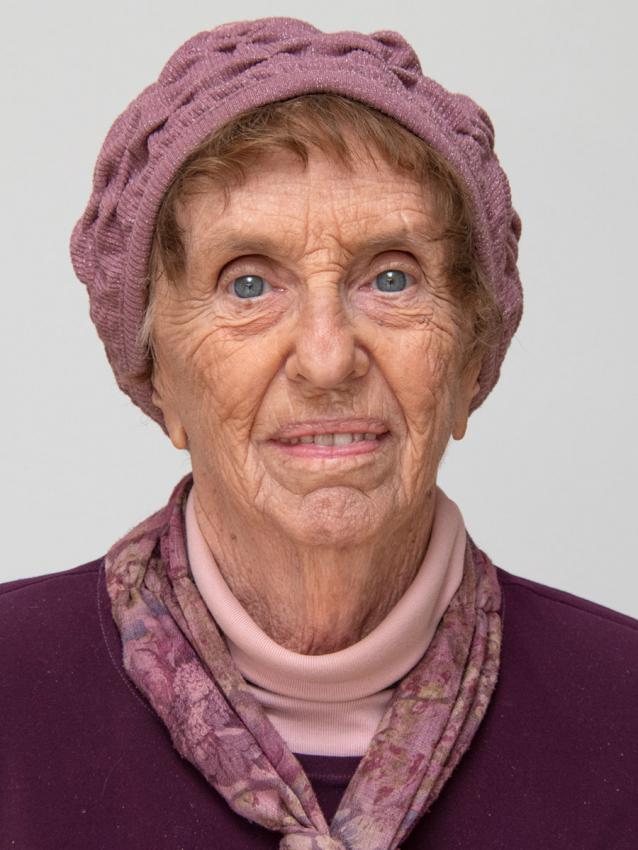Judith Sohlberg was born in Amsterdam in 1935 to Rosette and Joseph van Dijk. Joseph was a lawyer and active in the Jewish community. After the occupation of the Netherlands by Germany in 1940, Judith was forced to wear the Yellow Star. Her father, who spoke German, tried to free arrested Jews.
In 1943, three Germans rang the doorbell and told the family: "Be ready in five minutes." Rosette dressed Judith and her elder sister Elisabeth in several layers of clothes and the family was taken to the theater in Amsterdam, where the Jews were gathered. Members of the Underground would smuggle children out of the theater, but Judith and Elisabeth refused to leave, so as not to distance themselves from their parents.
In September 1943, on the eve of Rosh Hashanah, the Jewish New Year, Judith and her family were deported to the Westerbork transit camp. Men and women were separated from each other and sent to sleep in large halls. Every Tuesday, deportations left Westerbork to the east. Before each deportation, an atmosphere of deathly fear prevailed in the camp. In one of the deportations, Judith's grandfather was taken to Auschwitz and murdered.
Judith and the rest of her family were sent to Bergen-Belsen. As she got off the train, she heard shouts of "Raus!" and saw Germans with whips and dogs. For hours, Judith and her family members stood in formation, day after day, in the snow and the bitter cold. Due to the conditions, Judith's grandmother and grandfather, Rabbi Simon de Vries, died in Bergen-Belsen.
Rosette knew German and was therefore taken to work in the German offices. She would steal take burnt crusts of bread and secretly bring them to her daughters. Adults covertly kept the children busy. Judith studied arithmetic and embroidery. She and Elisabeth embroidered a challah cover for Shabbat, decorated it with an inscription in Hebrew, and kept dried bread in it. On Passover, the prisoners baked a matza-like pastry. One of the uncles wrote a Haggadah from memory and family members read from it.
In the camp, the Germans separated men and women. When the family members were allowed to meet, Judith would go to her father's shack, and there, at his request, she would walk among the sick who were lying in bed, smile at them and encourage them to stand, because her father told her that whoever did not get up, wouldn't stay alive.
In April 1945, the family members were put on a train that traveled without a destination, between the adjacent western and eastern fronts. Many of the prisoners died on the train. At one of the stops, Judith and her sister jumped over the dead at the door of the car, took a sack of potatoes and brought it inside. "Those potatoes saved many people on the train," says Judith.
Two weeks later, the Red Army released the prisoners of the train near the town of Tröbitz.
Judith arrived in Switzerland and there she met Saul, a classmate of hers who had been hidden with Christian farmers in the Netherlands. Later the two got married and immigrated to Israel in 1959.
Judith and Saul have four children, 24 grandchildren and 33 great-grandchildren.


